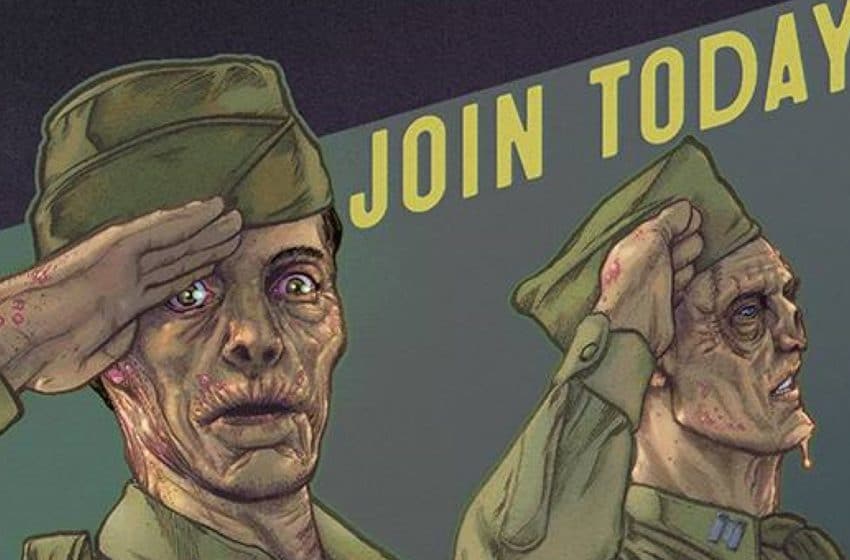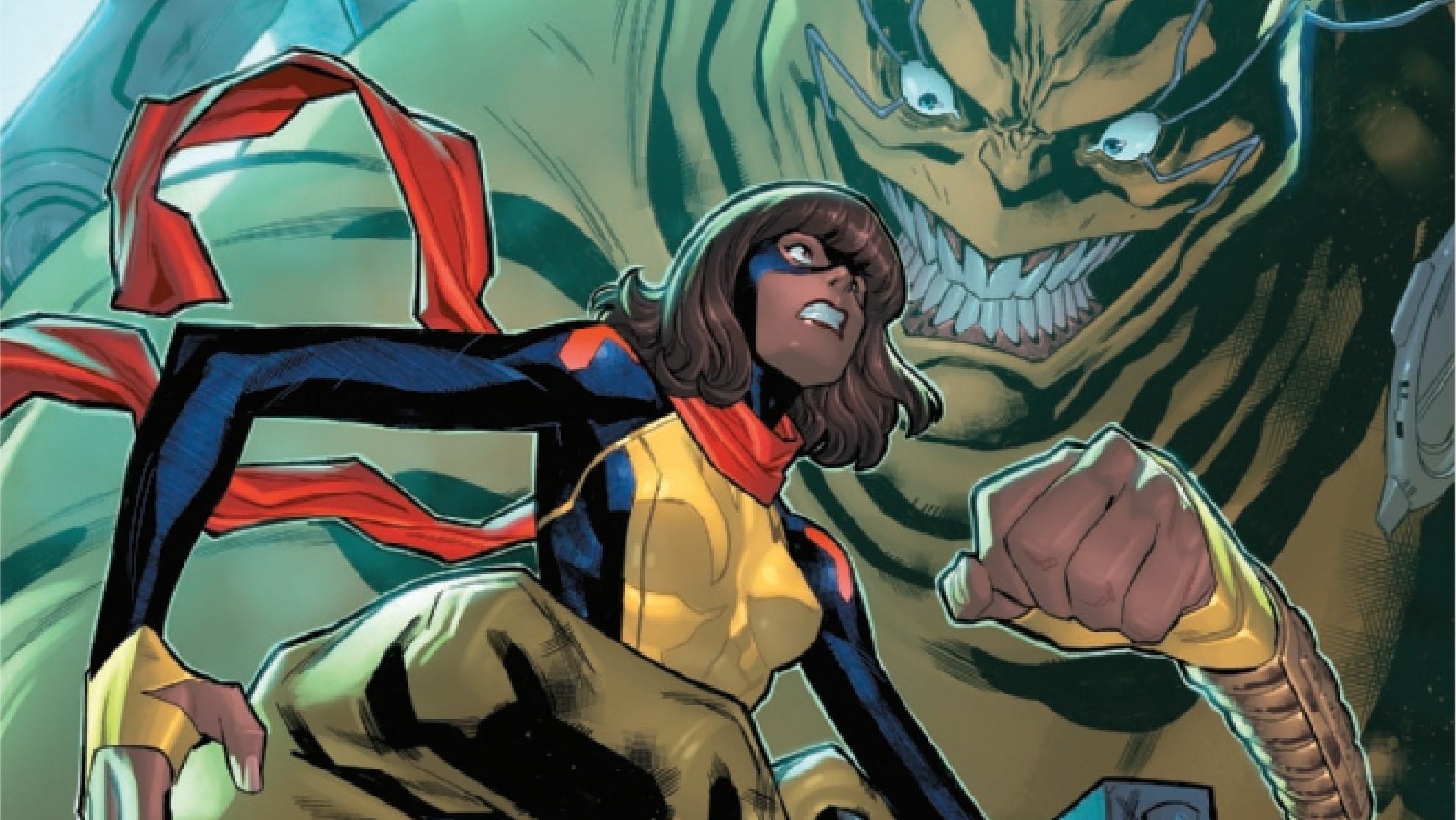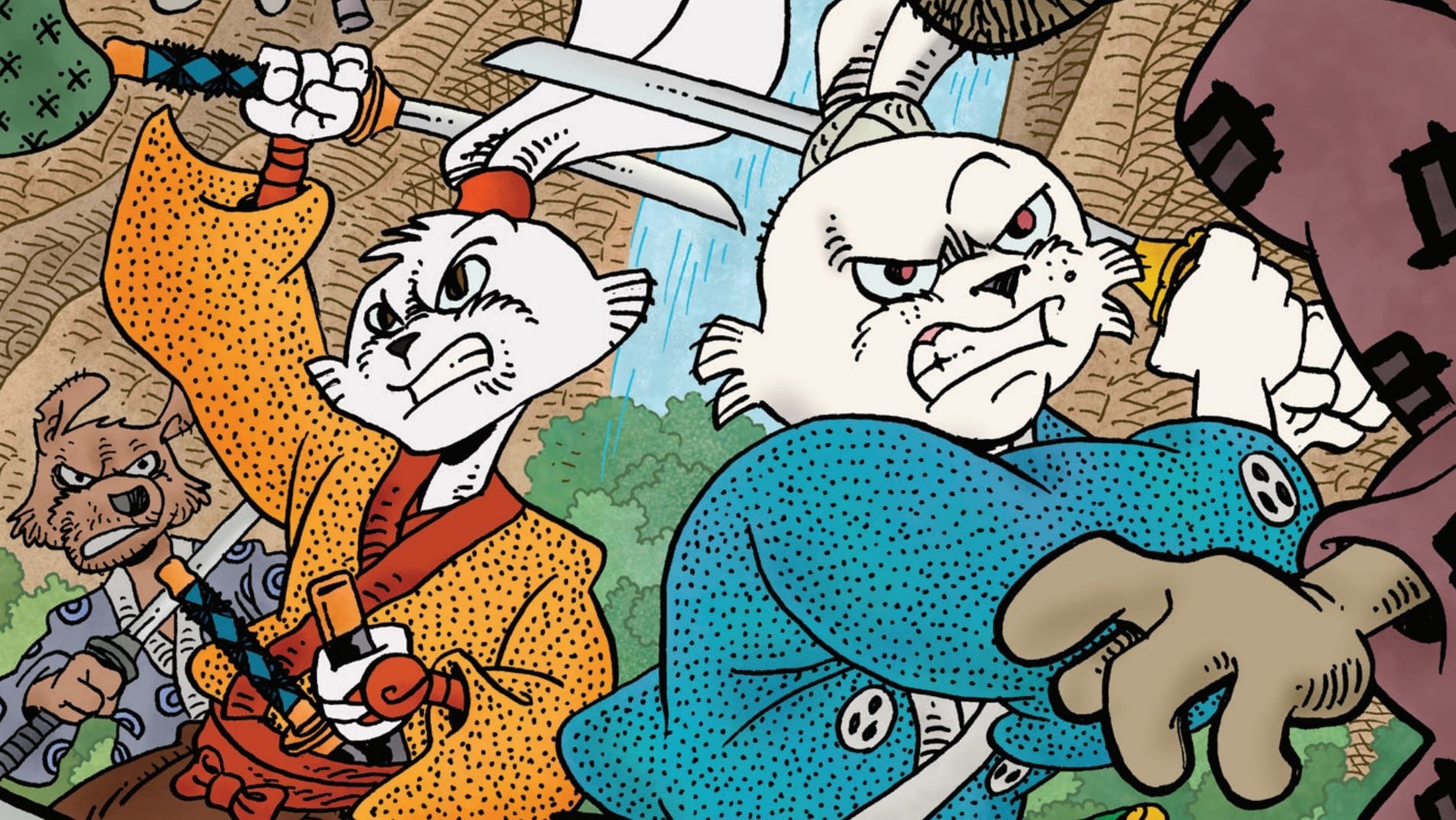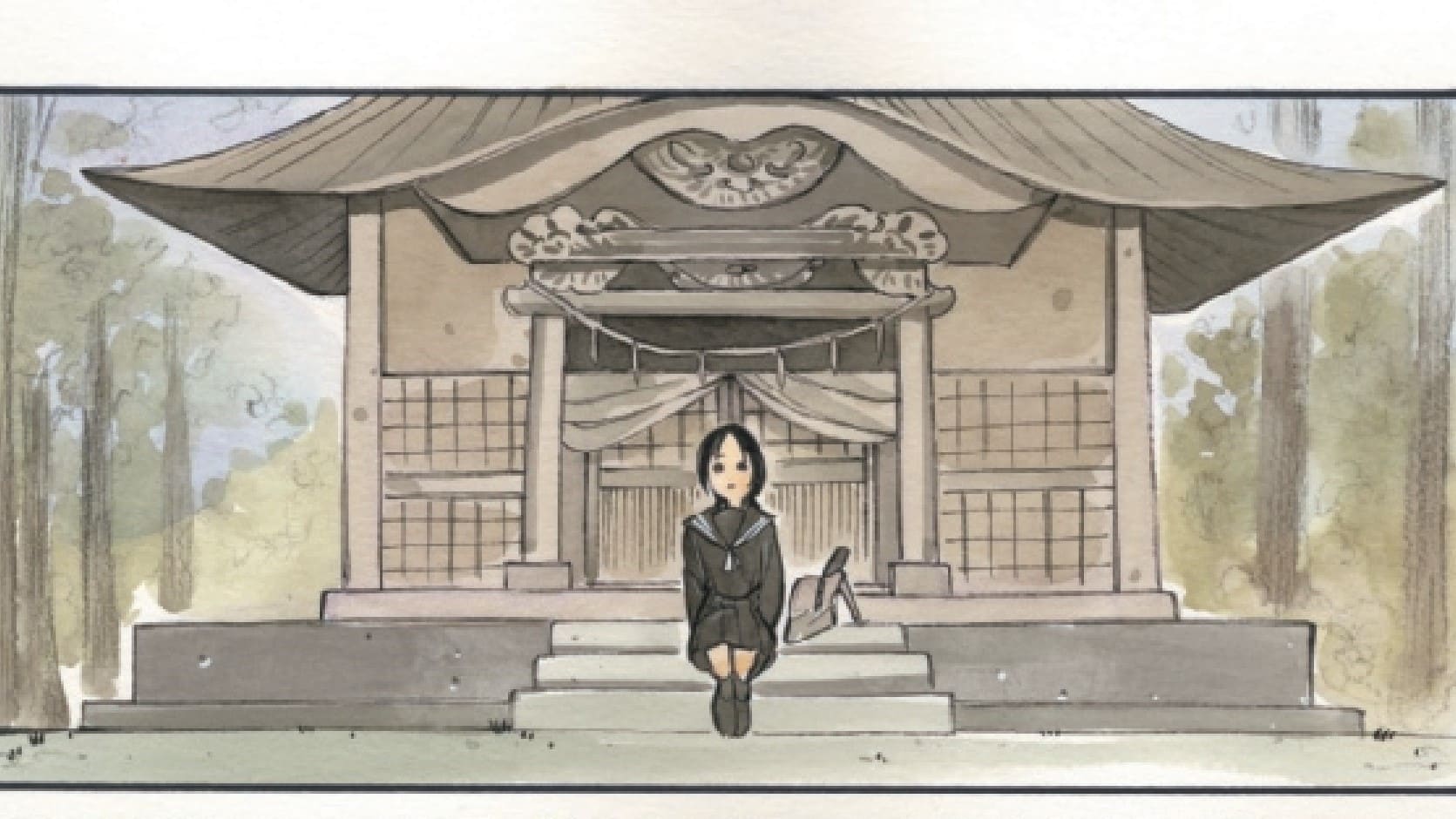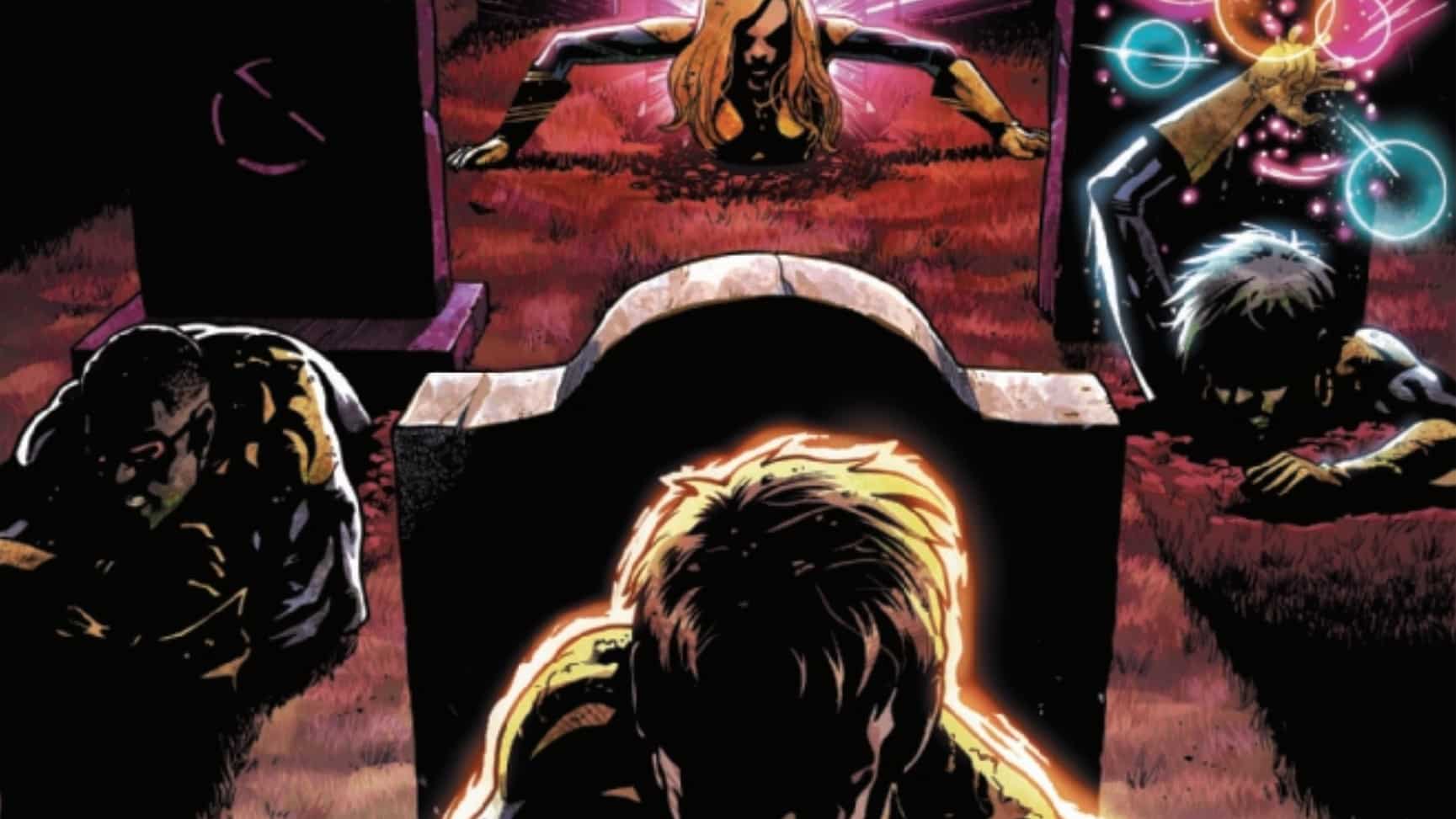It’s 10 years after the end of the world, and I feel fine. Wait — there are zombies? Ah, shit. It’s Nuclear Family #4 by writer Stephanie Phillips, artist Tony Shasteen, colorist JD Mettler, letterer Troy Peteri and publisher AfterShock. Based on a short story by Phillip K. Dick.
Will Nevin: Let’s start first with a topic I did not expect to get into in this book: zombies. Do you have a favorite entry in the genre, Forrest? If you pinned me down and made me choose, I’d probably go with 28 Days Later and the unrelenting terror posed by the infected in that world. Then again, it’s hard to argue against the first/best Night of the Living Dead, and, shit, even Zack Snyder did good with his Dawn of the Dead remake. (Haven’t seen his Army of the Dead for the record, but the trailer looked like a good time.)
Forrest Hollingsworth: A Dave Bautista-starring zombie heist movie next to 28 Days Later is a really good encapsulation of the absolute, hilarious disparity of the genre. For my picks, I’m going with Zone One by Colson Whitehead and Resident Evil (the only game series I can say I’ve played every entry of, even the Game Boy Color and Wii ones).
Will: Not that the Loyal Content Consumers didn’t come here for zombie picture talk, but to corral this shambler back on topic, I thought this was actually a good example of zombie fiction here in Nuclear Family #4. Years ago when I was writing a piece on the genre in comics — the project was so cursed, by the way, I was covering Bill Jemas’ foray into truly wretched comic books based in the public domain Night of the Living Dead universe — and a knowledgeable English professor dropped a little chestnut that’s always stuck with me: The real monster of any good zombie fiction is always us — the people willing to do unspeakable things to survive or take advantage of other survivors.
And goddamn if we didn’t get that here. These fascist sumbitches, Forrest, are so evil, they found a way to make zombies from fuckin’ scratch. Who ever does that?
Forrest: It’s a good question! Given that the lead scientist here proudly recalls the relative radioactive exposure levels of Hiroshima, though, I can’t say I’m surprised. The nuclear bomb is, in my humble opinion, America’s greatest sin, and anyone who celebrates it is probably already a little too far gone for me — a kind of nationlist zombie themself.
Will: What’s a few war crimes between friends?
What’s That Thing Where You Stretch Stuff out to Fill Space without Advancing the Story?

Will: When we left the gang last time, they were falling through a ceiling into a super secret zombie lab … where they stayed for most of this issue. Look, like I said I thought this was pretty interesting and a great exploration of the genre, but this issue took decompression to the next level. I mean, what, the bulk of #4 took place over five minutes? 10? It wasn’t enough to sink the book, but it was really noticeable.
Forrest: Absolutely. It’s the Dungeons & Dragons kind of decompression, where combat that takes the players upwards of an hour to play out is actually taking place across 60 seconds in fiction. It’s not an inherently interesting read, and the relative slowness of the action actually makes it more visually incomprehensible in some cases. I had a hard time tracking the hot potato of the syringe until it was finally administered, and the weird artistic compulsion to make everyone look like they’re smiling really undercuts some of the tension.
Will: The art does have a weird sort of quality to it, doesn’t it? Like, the textures are all off or something. So while the issue was strangely decompressed, one thing that’s weirdly accelerated is the Roger character arc. We just met him last issue, right? And now we’re supposed to care about this mystery of what happened to his mother? Too weird, too sudden and Roger himself is entirely too generic. I still think he’s a narc.
Forrest: And I’m still with you. He says “stranger things have happened” here as a kind of defense but, bud, have things stranger than a nuclear time traveling family helping you escape from a horde of weapons-grade zombies really happened? It seems unlikely, even in his admittedly already strange Snowpiercer social stratification-led life.
We’ve Gotta Go Back, Marty

Will: My gripes about pacing are really complaints about the standard five-issue miniseries, which seems to be the only format AfterShock works in. Sometimes, it’s not a problem — a series comes in, drops five perfectly paced books and gets the hell out to maybe one day make money in trade or as an adaptation. But for most books, it seems like a struggle to pull off, and while these 22 pages read like seven or eight, I have no clue how #5 is going to wrap all of this up.
Forrest: I agree. We can’t hold it against the creators, as it’s a miracle that any comic gets made let alone published given the state of the industry, but it’s the more readily apparent reason behind stuff like our conflicted feelings on Roger’s character arc, too. There’s not a lot of real estate here, and you have to cut the narrative corners that make the most sense — especially hard when you’re also beholden to source material.
Will: On that excellent note, let’s talk again about the source material for this series, Phillip K. Dick’s short story “Breakfast at Twilight.” I’m going to commit now to reading it for our fifth and final chitchat (since I can’t be spoiled after I read the last issue, now can I?), but where are you right now on how closely the series has tracked the short story? Also, let me just say this for Dick: Combining nuclear apocalypse, zombies and time travel is a hat trick I never thought I’d see outside of a Wolfenstein game.
Forrest: I think the creative team has done a pretty good job of focusing in on both the tangible and intangible sociopolitical elements, all things considered, and that’s the real crux of Dick’s work. They have certainly taken some … interesting liberties, but so do the Resident Evil movies, and those made a lot of money!
Will: Wait, I thought you were a communist?! Our collective failure to seize the means of production aside, again, I don’t know how this series is going to bring everything home in the next issue. But I guess we’ll find out, won’t we?
Living in the Fallout
- Seriously, Roger is a narc.
- NO GODS, NO MASTERS, NO ROGERS.
- The McClean dad says his wife did the “right thing” saving his life at the expense of someone else’s, which certainly opens some morally dubious doors.

